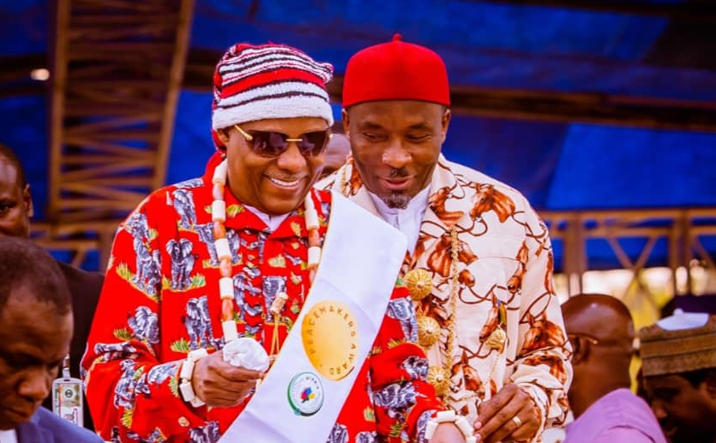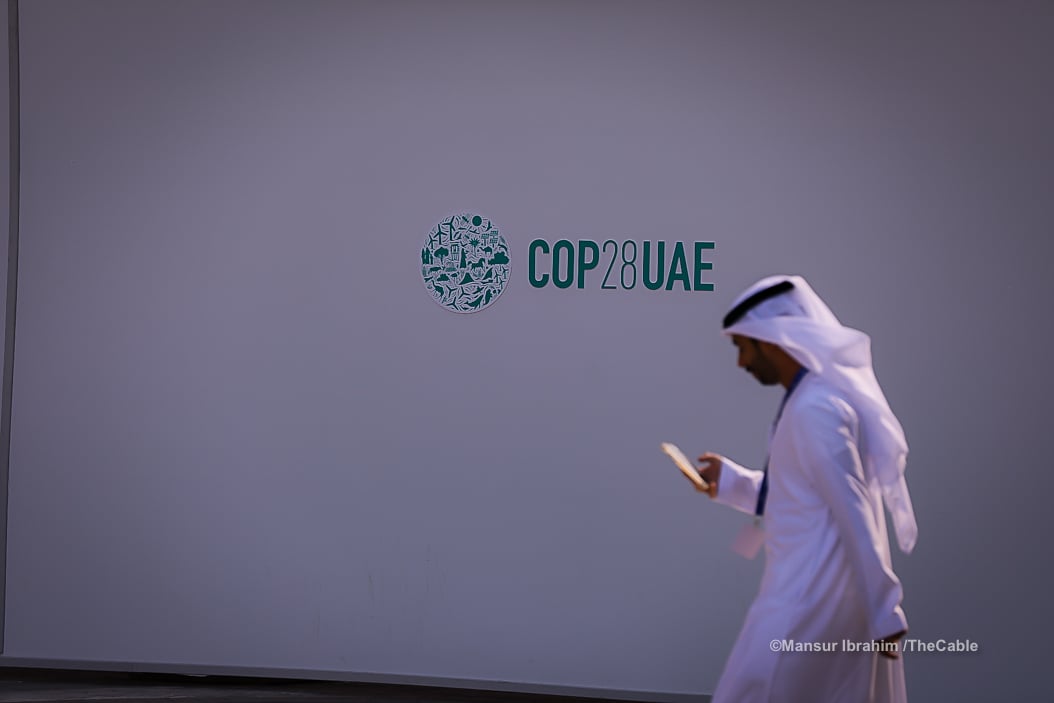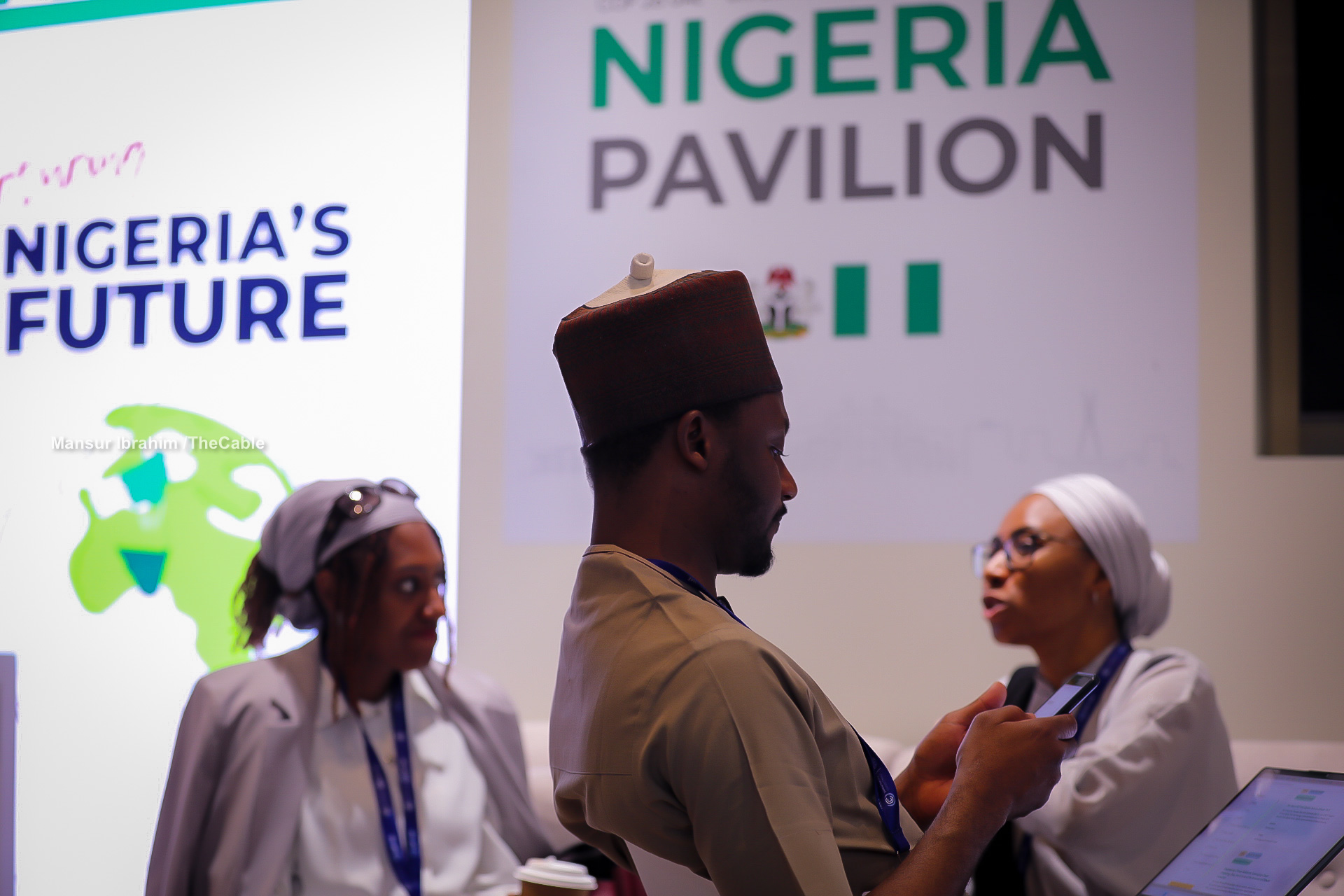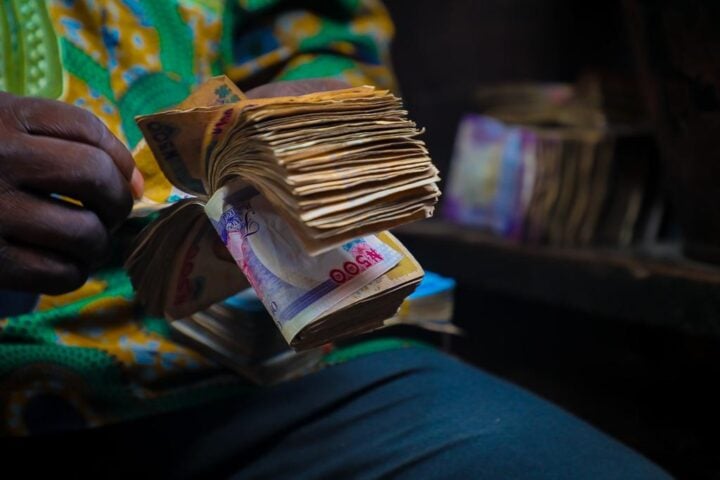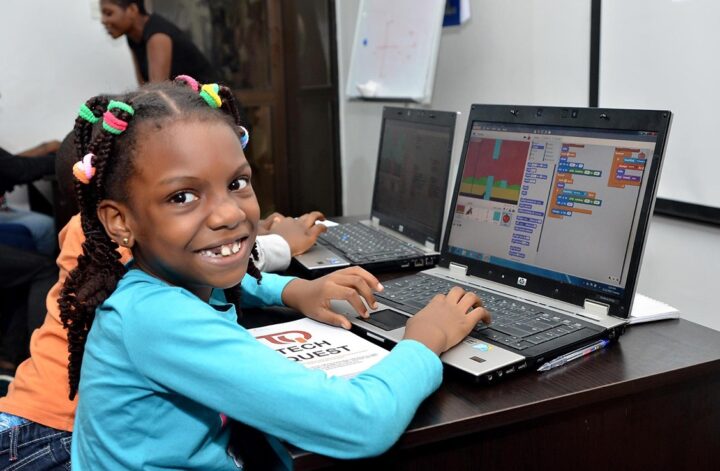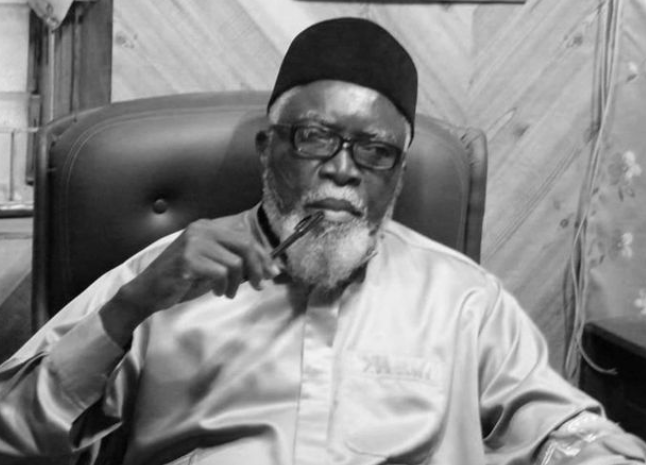BY VITALIS OBIDIAGHAA
Let me begin this article by paying tribute to the late Dr Chuba Wilberforce Okadigbo, the renowned political philosopher who coined the phrase –handshake across the Niger– which I have chosen to use as the title of this piece. While speaking at the palace of the Ooni of Ife when efforts were being made to reconcile the National Party of Nigeria (NPN) with the Unity Party of Nigeria (UPN) during the Second Republic, Dr Okadigbo coined that philosophical phrase, which is aimed at strengthening the cords of our national unity, emphasising that the things that unite us are far greater than the things that divide us as a people. Known for his uncommon understanding of the power of words in shaping human realities, Dr Okadigbo used great words to touch our emotions, presenting us with his vision of a united Nigeria –a nation where we can live as brothers and sisters, irrespective of our diversity.
It was that same Okadigbo, the Oyi of Oyi, who famously opined that “if you are emotionally attached to your tribe, religion or political leaning to the point that truth and justice become secondary considerations, your education and exposure are useless,” reminding us that “if you cannot reason beyond petty sentiments, you are a liability”. For those who have the understanding of the times and spirituality of words, Okadigbo’s philosophy remains a continuous guiding light in our nation’s quest to live up to her manifest destiny as the hope of Africa and the pride of the black race.
As a concerned public intellectual who is deeply committed to the ideals of our national integration, my heart was gladdened when I saw the spirit of that Okadigbo’s phrase come alive recently in Anambra State, when President Bola Ahmed Tinubu, Vice President Kashim Settima and the National Chairman of the All Progressives Congress, Abdullahi Umar Ganduje were conferred with chieftaincy titles by His Royal Highness, Igwe Dr. Robert Chukwudilim Eze (Okofia VI), the Igwe Ukpo and Clan Head of Dunuokofia Ancient Kingdom in Ukpo, Dunukofia Local Government of Anambra State. President Tinubu was honoured with the chieftaincy title of “Eze Udo of Igbo Land” meaning “King of Peace in Igbo Land”, Shettima was decorated with the title “Enyi Ndigbo” meaning “A friend of Igbo people” while Ganduje was conferred with the title of “Agu Naechemba Ndigbo” which means “Lion that protects the public.”
Advertisement
Speaking after the conferment of traditional titles, Shettima, who represented President Tinubu, said that the administration understood the challenges of Ndi Igbo and would work assiduously to overcome them. Speaking further, he stated that “with our leaders like Senator Hope Uzodinma, Senator Dave Umahi, Hon. Ben Kalu, the process of integrating Ndi Igbo in the mainstream of Nigerian politics has commenced. Stating that “Senator Ifeanyi Uba has also joined APC,” he reiterated that “wherever you go in this country, if you do not see an Igbo man, you better run away from that place. Why won’t I identify with you? Be rest assured that Ndi Igbo are the heartbeat of the Nigerian nation. We will work assiduously to see that Ndi Igbo are well represented”.
The spirit of that Okadigbo’s phrase also resounded recently in Abia state when the vice-president received a chieftaincy title – Enyioma Ndigbo – on behalf of the President conferred by the Chairman of the Abia State Council of Traditional Rulers, His Royal Highness, Eze Linus Mbah on December 29, 2023. For those who may not understand the Igbo language, “Enyioma Ndigbo” means a good friend of Igbo people. Speaking after the conferment of title during the unveiling of the Peace in South East Project (PISE-P) by the Deputy Speaker of the House of Representatives, Hon. Benjamin Okezie Kalu, Shettima, who visited the Bende area of Abia State, said that the President is worried about the economic devastation inflicted on the region by some misguided elements, promising to restore normalcy.
Speaking further, he stated that “Mr. President is acutely aware that our commitment to Nigeria’s future remains incomplete as long as we grapple with the sinister operations of economic saboteurs who masquerade as advocates for the Ndi-Igbo. That’s why he’s determined to utilize all available resources to ensure that the peace we’re establishing in this region is not cosmetic, and we can’t guarantee it unless all of us see through the falsehoods and propaganda that have become weapons against our unity.”
Advertisement
As one reads through Shettima’s words, it brings to mind the words spoken by the late American President, John F. Kennedy, during his 1961 address to the Canadian parliament when he observed that “…geography has made us neighbours. History has made us friends. Economics has made us partners. And necessity has made us allies. Those whom nature hath so joined together, let no man put asunder. What unites us is far greater than what divides us.”
Why cite a 63-year-old quote from an American in this piece? –someone may ask. And my answer would be; –because I think it continues to resonate, especially in Nigeria. The statement highlights the often-forgotten reality about our shared humanity. When one rises beyond personal sentiments, one realizes that regardless of ethnicity, religion, political or economic status, no one can deny the fact that we share a common national destiny as citizens of the Federal Republic of Nigeria, and although we often see things differently, our common ground is greater and much more important than what we often disagree on.
Being someone who believes in the great destiny of our nation, I have always been concerned by the tenor of some of our public discourses. I have witnessed how we often evolve into an “us versus them” attitude that blocks our ability to rise above personal sentiments and reach a consensus on matters of public policy, especially on those matters that affect our collective national destiny. From time to time, I have always suggested that we need to stop opposing each other just because of our professional, political, social or organizational views and instead embrace the beauty of our diversity, seeking for ways to collectively make our nation better.
Informed minds know that one of the greatest challenges of leadership for a plural society like Nigeria, particularly at the national level, is the daunting task of bridging the various religious, ethnic and political divides that often widen the dichotomies amongst different groups of people within our nation. This challenge becomes even more pronounced when one considers the fact that some political actors, through their words, actions and inactions, often bring to the fore, such things that divide us, instead of working to consciously promote those things that unite us as a people who share national destiny. Instead of seeing public service as an opportunity to promote human brotherhood, we often see some political leaders acting like ethno-religious champions, further weakening the bonds of our national unity.
Advertisement
Being conscious of the above challenge, Vice-President Kashim Settima has always strived to distinguish himself as a shining example of love and a leader who understands the social dynamics of the Nigerian nation, building friendships across ethnic, religious and political lines to the admiration of many. He has always advocated that the things that unite us are far greater than the things that divide us, — a statement that highlights the often-forgotten reality about our shared humanity. That, perhaps, explains why his recent “Warm Handshake Across the Niger” has received commendations from many quarters.
Beyond such public commendations, let us also be inspired by Shettima’s philosophy and join hands together with Mr President and talk about our collective future, needs and desires, respecting each other’s positions and differences and establishing new coalitions for our common good. For, it is clear that what we share, —our need for and desire to leave to future generations, a better country than the one we inherited, — must be our greatest concern. Building and maintaining a nation that meets our spiritual, cultural, social and economic needs must be where we place our energies. And let us remember, “What unites us is greater than what divides us.”
Vitalis Obidiaghaa is the author of Nigeria’s Manifest Destiny
Advertisement
Views expressed by contributors are strictly personal and not of TheCable.
Add a comment
